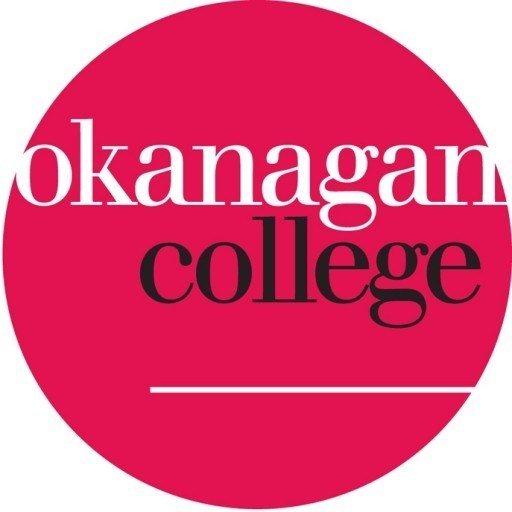Photos of university / #uofwaterloo
The Bachelor of Environmental Studies in Geography at the University of Waterloo offers students a comprehensive and interdisciplinary education focused on understanding the Earth's surface, spatial processes, and human-environment interactions. This program equips students with a solid foundation in physical and human geography, land use planning, GIS (Geographic Information Systems), remote sensing, and environmental management. Throughout their studies, students explore topics such as urban development, environmental sustainability, climate change, transportation, and resource management, preparing them for diverse careers in government, industry, academia, and non-profit sectors. The curriculum combines theoretical knowledge with practical skills, including fieldwork, data analysis, and spatial modeling, enabling graduates to analyze complex geographic issues and develop sustainable solutions. With opportunities for specialization and cooperative education placements, students gain real-world experience and build professional networks during their seamless integration of academic learning and experiential training. The program emphasizes critical thinking, problem-solving, and effective communication, ensuring graduates are well-prepared to address pressing environmental challenges and contribute to sustainable development initiatives locally and globally. Graduates of this program pursue careers in urban and regional planning, environmental consulting, geographic information science, resource management, and policymaking. The University of Waterloo's Geography program is renowned for its innovative teaching methods, state-of-the-art laboratories, and strong connections with industry partners, offering students a dynamic learning environment that fosters both academic excellence and practical expertise.
The Bachelor of Arts in Geography at the University of Waterloo offers students a comprehensive exploration of the Earth's physical landscapes, human societies, and the complex interactions between environment and culture. The program provides a strong foundation in geographical theories, methodologies, and spatial analysis, equipping students with essential skills to understand and address pressing global issues such as climate change, urbanization, resource management, and sustainable development. Students will engage in a diverse curriculum that includes courses in physical geography, human geography, Geographic Information Systems (GIS), remote sensing, environmental studies, and regional analysis. The program emphasizes experiential learning through fieldwork, lab exercises, and project-based assignments, fostering practical skills that are highly valued in numerous career paths. Students can tailor their education by choosing specialized electives in areas like urban planning, environmental management, or globalization. The program also encourages interdisciplinary approaches, integrating insights from economics, political science, and environmental science to develop well-rounded perspectives on geographic phenomena. Graduates of this program are prepared for careers in government agencies, environmental consulting, urban planning, transportation, international development, and academia. Additionally, students have the option to pursue undergraduate research projects or internships, gaining real-world experience that enhances employability. The University of Waterloo’s Geography program emphasizes critical thinking, analytical skills, and effective communication, preparing students to become informed global citizens capable of contributing thoughtfully to society’s challenges. Overall, the program aims to develop knowledgeable, adaptable, and socially responsible individuals equipped to make a meaningful impact in the diverse and interconnected world of geography and environmental science.
Program requirements for the Bachelor of Science in Geography at the University of Waterloo typically include a combination of core courses, electives, and general education requirements. Students must complete a specified number of credits, generally around 120, which encompasses both mandatory and elective courses. Core courses often include Physical Geography, Human Geography, Geographic Information Systems (GIS), Cartography, and Research Methods. Electives may span specialized areas such as Urban Planning, Environmental Management, Remote Sensing, and Climate Change. Students are encouraged to develop research and practical skills through fieldwork and internships, which may be required or strongly recommended. In addition, students must fulfill University-wide core requirements, including communication, mathematics, and social sciences components, to ensure a well-rounded education. The program emphasizes experiential learning, critical thinking, and analytical skills, preparing graduates for careers in urban planning, environmental consulting, GIS analysis, and academia. To graduate, students must maintain a minimum grade point average as established by the university, typically around 60-65%. Some courses may require prerequisites or departmental approval, and students are advised to consult with academic advisors to plan their course schedules appropriately. The program also offers options for specialization or minors in related fields. Overall, the degree aims to provide comprehensive knowledge of geographic concepts, spatial analysis, and environmental issues, equipping students with practical skills applicable in various industries and research contexts.
Funding opportunities for Geography and Aviation programs at the University of Waterloo include a range of scholarships, bursaries, and financial aid options designed to support students throughout their studies. Undergraduate students enrolled in these programs can access entrance scholarships based on academic achievement, such as the President’s Scholarship of Distinction and other merit-based awards. Graduate students may be eligible for research scholarships, departmental awards, and teaching assistantships that provide financial support while gaining teaching experience. Additionally, the university offers need-based bursaries and financial aid programs for students demonstrating financial need, helping to reduce barriers to education. Students are encouraged to complete the OSAP (Ontario Student Assistance Program) application for government loans and grants, which can be supplemented with university-specific aid packages. For international students, some external scholarships and funding options may be available, often requiring separate applications and demonstrating exceptional academic or extracurricular achievement. Co-op programs integrated within the Geography and Aviation curricula also provide earning opportunities through paid work placements, which help offset tuition costs and living expenses. Students are recommended to consult the university’s Financial Aid Office and the departmental websites for detailed information on specific awards, eligibility criteria, application procedures, and deadlines. The university actively promotes financial literacy and offers workshops to assist students in planning and managing their finances effectively throughout their academic journey. Overall, the University of Waterloo’s comprehensive financial support framework aims to make higher education accessible and affordable, enabling students to focus on their academic and career development in Geography and Aviation fields.
The Geography program at the University of Waterloo offers students a comprehensive education in understanding the physical and human aspects of the Earth's surface. The program is designed to equip students with analytical skills to examine spatial phenomena, environmental challenges, and societal issues through various geographic approaches. Students have the opportunity to explore diverse subfields such as physical geography, human geography, geographic information systems (GIS), remote sensing, urban planning, environmental management, and sustainability. The curriculum emphasizes experiential learning through fieldwork, research projects, and internships, enabling students to apply theoretical knowledge to real-world problems. The program prepares graduates for careers in urban and regional planning, environmental consulting, government agencies, non-profit organizations, or further academic pursuits in geography and related disciplines. Students benefit from access to state-of-the-art GIS laboratories, remote sensing technology, and extensive datasets. The program also fosters critical thinking, spatial analysis skills, and a global perspective, emphasizing sustainable development and environmental stewardship. Additionally, students can participate in study abroad programs and co-op work terms, gaining valuable international experience and practical skills. The university's strong links with industry and government organizations provide excellent networking and employment opportunities post-graduation. The program's structure allows for specialization in various geographic disciplines, catering to students' interests and career goals. Overall, the Geography program at the University of Waterloo offers a balanced combination of theoretical understanding and practical skills, preparing students to address complex geographic issues at local, regional, and global levels.




